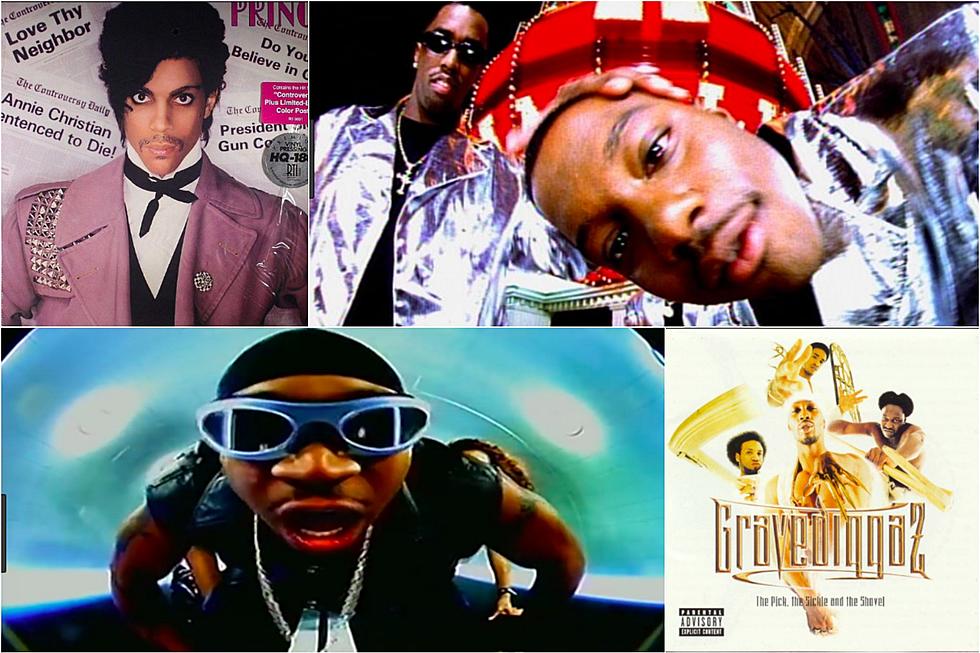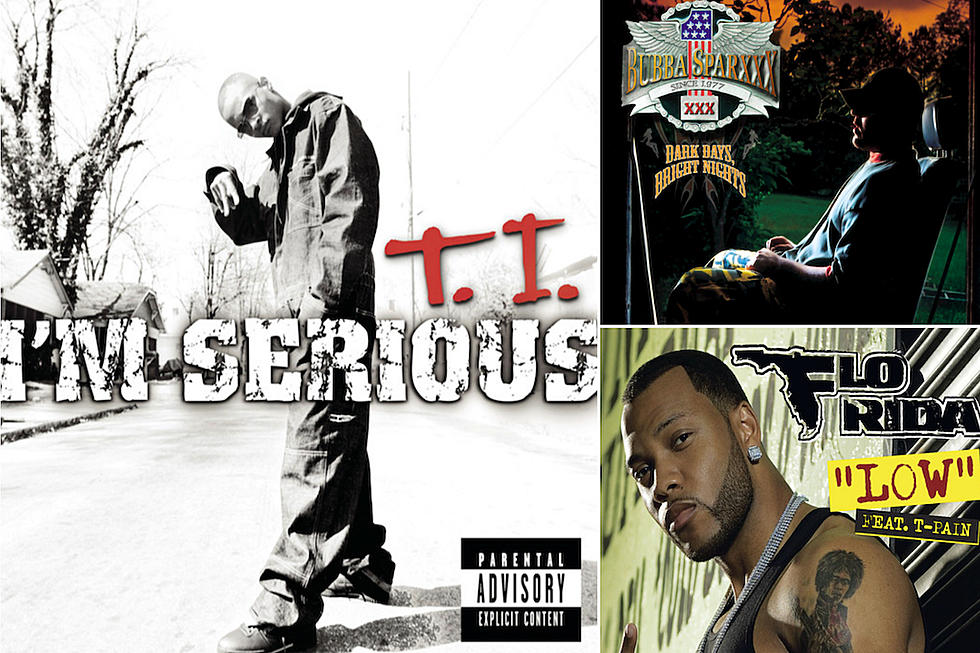40 Years Ago: Commodores Release ‘Machine Gun’
Today, Lionel Richie is an R&B elder statesman, an artist whose incredible string of crossover successes during the '70s and '80s helped pave the way for a growing list of performers. But we all get our start someplace, and for Richie, that place is marked with 'Machine Gun,' the 1974 debut LP from the Commodores.
Released on July 22, the album announced the Alabama sextet's arrival as one of the tightest, most talented funk crews on the scene. The 10-track collection presented a band that seemed to have spent years honing its sound, and for good reason: the group traced its origins back to 1968, when they met as young students on campus at Tuskegee University, and after signing with Motown in 1972, they'd spent over a year crafting the arrangements for the songs -- then an eternity for a young act.
All that extra time and attention paid off. Led by Richie and co-lead singer/multi-instrumentalist Walter Orange, the band -- rounded out by guitarists Thomas McClary and William King, bassist Ronald LaPread, and keyboard player Milan Williams -- scored an immediate hit with the 'Machine Gun' title track, a funky instrumental that was reportedly named by label boss Berry Gordy for Williams' busy clavinet part, which he said reminded him of the titular weapon. The song entered the Top 10 on the R&B charts and broke the Top 40 of Billboard's pop-driven Hot 100, but as the band quickly discovered, one hit doesn't necessarily lead to more -- especially when it's an instrumental.
"We really hadn't planned for 'Machine Gun' to be our first release," explained King later. "It was big in Europe, in Asia, in the United States, Africa and South America. But it hadn't taken our name with it. Everybody knew 'Machine Gun' but they didn't know the Commodores. That was because it was an instrumental. Anyway, since it had not carried the Commodores, we made up our minds that the next release would have lyrics to it. So, we did 'I Feel Sanctified' next. We wanted something with a strong groove."
'I Feel Sanctified' did well on the R&B charts, peaking at No. 12, but it stalled at No. 75 on the Hot 100, and the Commodores were never content to be associated with one particular format; from the beginning, they envisioned the kind of broad-based, household-name success typically reserved for acts like the Beatles or the Rolling Stones.
"I'm a rocker," explained Richie during a 1978 interview with Creem. "When we started out back in '68, if I had my way I'd have said, 'Turn the amp up on 12 and let's go.' But I couldn't do it. I had to realize one thing: this industry divides into two categories: R&B and pop."
The plan, continued Richie, was to build audiences steadily, conquering each format along the way. "Before I go and sell out Madison Square Garden with Led Zeppelin and all the rest of the brothers, I've got to first of all start R&B," he added. "Get myself a market together. We cannot say, 'I wanna be a Beatles.' There's a totally different marketing strategy. Number one, we're black. We've got to sell ourselves on another angle. The angle is energy: coliseum energy, not nightclub energy. When R&B groups played coliseums, they used to do seven groups in a night. I wanted to sell out Madison Square Garden as the Commodores. Back in '68 people looked at us as if we were crazy."
They'd get there eventually, but in the meantime, 'Machine Gun' proved a compelling calling card for those who accepted the invitation to the Commodores bandwagon. "I think this record is really the sound we have been looking for all these years," Richie enthused. "It's the first time we have had our sound and not really been subjected to someone else's sound. Not that I am complaining about anybody else's sound, but we feel we have a sound of our own, and that if it were allowed to blossom, it could carry us through."
That sound eventually carried them through in a big way, although crossover success came with a price; as the Commodores' ascent to mainstream domination continued, they focused less and less on the funk side of their sound, making more room for poppy ballads like 'Easy' and 'Three Times a Lady.' "We concentrated on the lyrics more than we had ever done before because we felt that the pop listeners were more into lyrics than the R&B fans," explained King. "They tend to go more for the rhythm and the beat whereas the pop fans prefer lyrics to dancing, it seems. I wasn't into lyrics myself, I must admit! If I couldn't pat my feet to it, you could turn it off."
"The funky side was the best!" sighed Richie in a 1996 interview. "See, it's the bar band thing. You have to understand what we represented at that time. We were, I mean, you wanted a sorority or fraternity party or you were opening a club or a bar? Call the Commodores! But we played, we were absolutely funky when we started."
As Richie went on to explain, the group realized it needed to broaden its sound in order to stand out in a glutted funk marketplace. "We couldn't cut through," he continued. "In other words, when you got the Ohio Players, when you had, you know, Earth, Wind and Fire and stuff like that... We were trying to get to a level of sophistication, trying to find out where we were going."
But even after incorporating those extra elements into the mix, Richie insisted that the Commodores' massive success with pop ballads was more of an accident than it might have seemed. "We didn't plan on having 'Three Times a Lady,' 'Still' and all these songs as our focal point," he recalled. "What happened to the Commodores was that when we had an album to do, everybody would bring an uptempo song to the group, so I figured out an easy way to get a song on the album: I'd bring the slow song, that was all I was supposed to do. So it guaranteed that my song got on the album. Now, what happened with all that was that my song became the hit, so that became the real focal point of the group, but it was just supposed to be the slow song, you follow me?"
"Supposed to" or not, those songs went on to largely define public perception of the Commodores, to the point that casual listeners are sometimes surprised to learn of the band's funkier roots -- even though they took pains to highlight all sides of their sound as late as 1977, when 'Easy' and 'Brick House' both hit the pop Top 10. A four-piece version of the band remains active today, although they haven't recorded an album of new material since 1993's 'No Tricks' -- and we all know about Richie, whose solo career went in a far more mainstream direction.
Still, tempting as it may be to imagine a world in which the Commodores stayed funky, we still have their early records to return to. And as 'Machine Gun' demonstrates, those albums remain every bit as vital -- and danceable -- as they ever were. Four decades on, the Commodores' debut sounds like it hasn't aged a day.
More From TheBoombox









